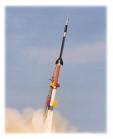There currently appears to be much interest in the role of reflection in learning with a focus on contextualising learning to help students make more meanigful links between theory and practive. Through reflective thinking learning becomes more meaningful, and leads to deeper learning. [1]
Research conducted at Royal Melbourne Institute of Technology, discovered that the students found the best feature of blogs was writing that encouraged students to review and revise their learning. Use of blogs provides an incentive to write summaries of information received during class, comment on what they view as important or relevant to them, or information they wanted to recall at a later date. It was a great way to store and organise information which was easy to locate, manage, and impossible to loose. Students like being able to watch their knowledge grow and the ability to review their learning [2]
The repeated, regular journal entries makes blogs and ideal refelctive learning process. [3] Blogs encourage them to think about what they are writing, to continue writing over an extended period of time, to engage with others in conversations that further extend thinking and writing skills. [4] It helps the student make connections between what they know and what they do and seems more relevant to experiential learning.
Friday, November 2, 2007
Subscribe to:
Post Comments (Atom)

No comments:
Post a Comment